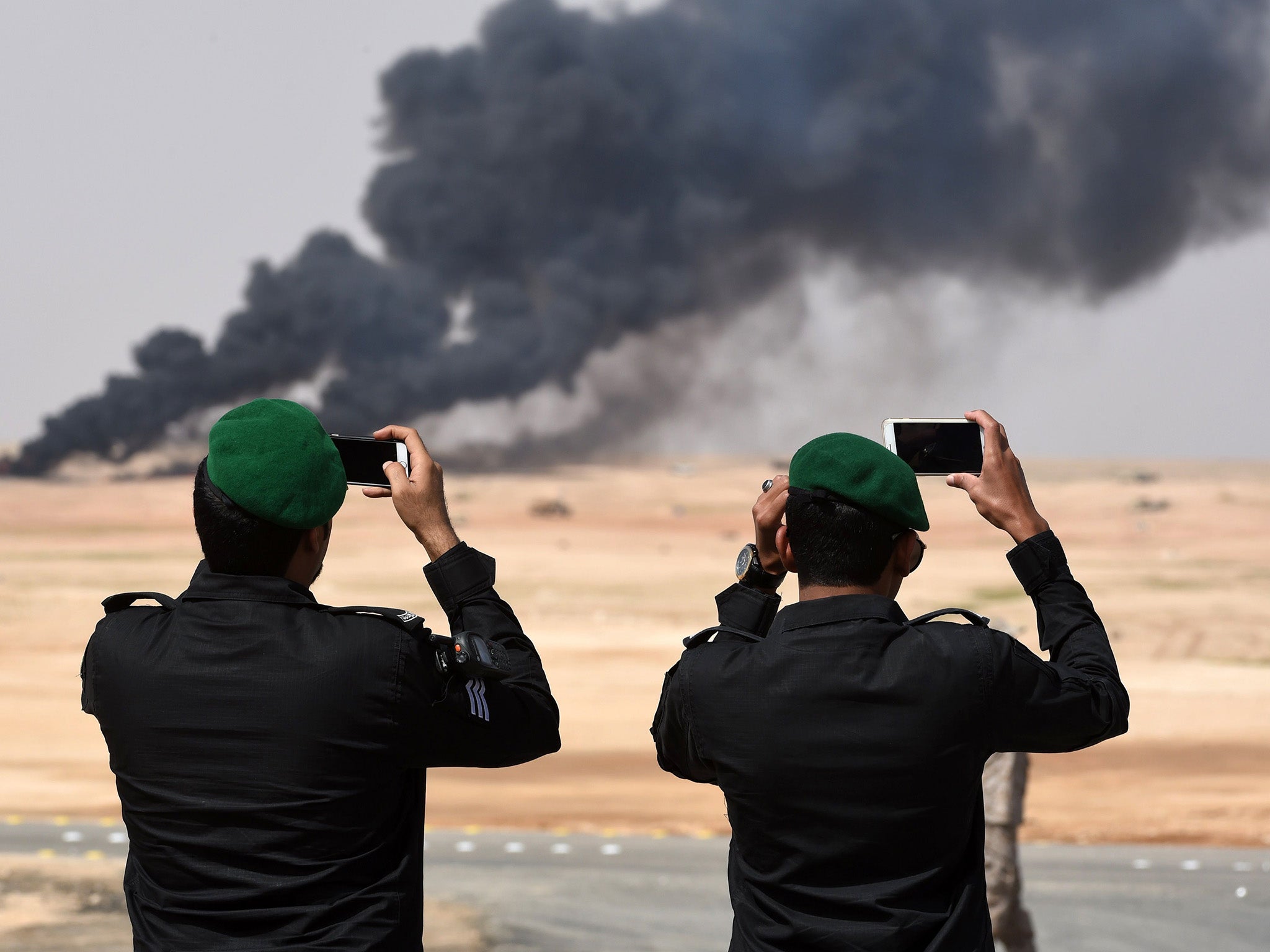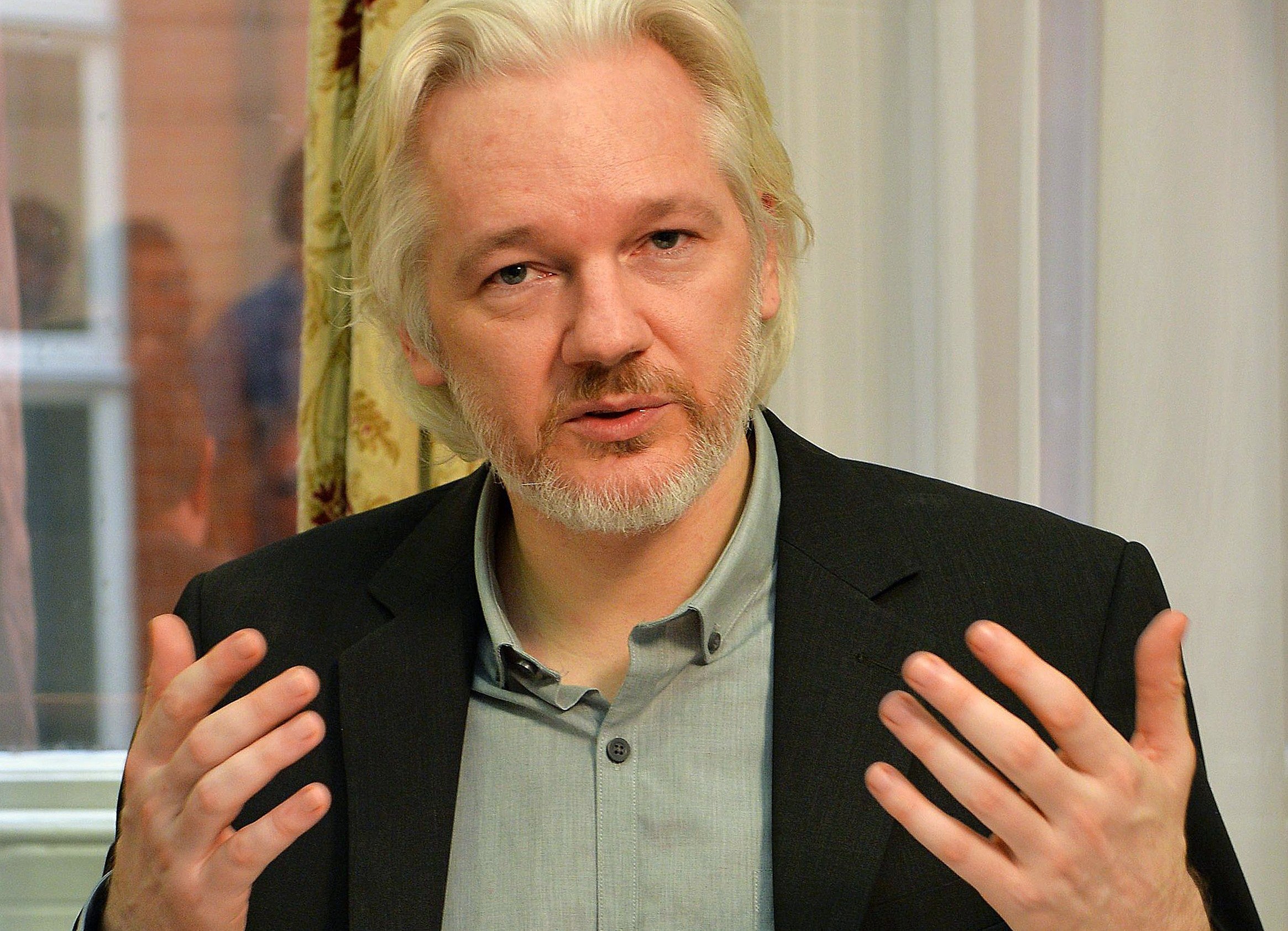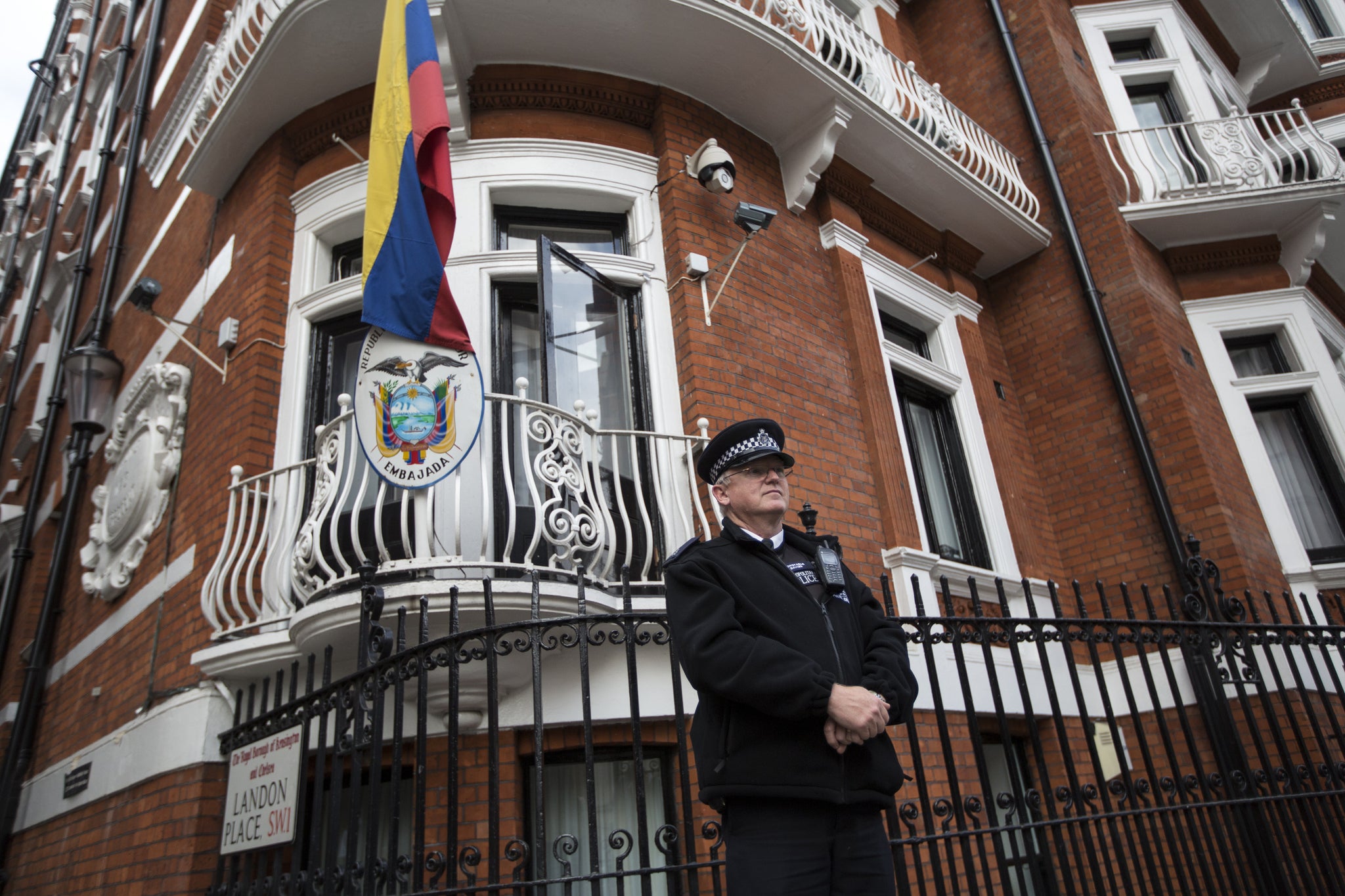Saudi Arabia warns citizens about 'fake' information after Wikileaks release 60,000 secret documents giving an insight into Saudi foreign policy and the behaviour of the royals
Wikileaks is poised to release hundreds of thousands more documents

Your support helps us to tell the story
From reproductive rights to climate change to Big Tech, The Independent is on the ground when the story is developing. Whether it's investigating the financials of Elon Musk's pro-Trump PAC or producing our latest documentary, 'The A Word', which shines a light on the American women fighting for reproductive rights, we know how important it is to parse out the facts from the messaging.
At such a critical moment in US history, we need reporters on the ground. Your donation allows us to keep sending journalists to speak to both sides of the story.
The Independent is trusted by Americans across the entire political spectrum. And unlike many other quality news outlets, we choose not to lock Americans out of our reporting and analysis with paywalls. We believe quality journalism should be available to everyone, paid for by those who can afford it.
Your support makes all the difference.Tens of thousands of secret documents that give an insight into the workings of the Saudi Arabian state have been published by Wikileaks, and the nation's Foreign Ministry has responded by urging citizens not to share what they call 'fake' information.
Wikileaks published the Saudi cables on Friday, and have already released over 60,000 documents. Further batches of thousands of documents will be released over the coming weeks. Wikileaks claims to have over half a million Saudi documents ready for release.
They paint an interesting picture of the authoritarian and extravagant government of the country, which is still an absolute monarchy ruled by the House of Saud.
Some of the documents that have been authenticated by the Associated Press show an interest in undermining Iranian interests. One memo apparently sent from the Saudi embassy in Tehran mentions the "frustration of the Iranian citizen and his strong desire for regime change."

It mentioned ways to publicise the concerns of Iranian citizens through the internet and social media.
The memo also suggests "hosting opposition figures overseas, coordinating with them and encouraging them to use galleries to show pictures of torture carried by the Iranian regime against the people."
Other memos are even more inflammatory. One, which shows the Saudi emblem of a palm tree and two crossed swords above the words 'Top Secret', claims that Gulf states were willing to pay $10 billion to secure the release of deposed Egyptian dictator Hosni Mubarak.
Another page marked as top secret alleges that Iranian fighter jets bombed South Sudanese forces during a 2012 standoff over the oil-rich area of Heglig, during a confrontation between Sudan and the newly independent nation of South Sudan.
Less internationally important but much more glamorous is the 2009 invoice for an unpaid limousine bill racked up Princes Maha Al Ibrahim, who allegedly left Geneva after failing to pay the limousine company $1.4 million (£882,000).
The invoice was sent from Geneva limo company Golden Limousine Services and was addressed to the Saudi mission there. Louis Roulet, administrator of the company, said the document was authentic and that he remembers the incident well. He added that the hefty bill, which he claims was "far more" that $1.4 million, was eventually paid in full.
In a press release that accompanied the first batch of documents, Wikileaks co-founder and editor-in-chief Julian Assange said: "The Saudi Cables lift the lid on an increasingly erratic and secretive dictatorship that has not only celebrated its 100th beheading this year, but which has also become a menace to its neighbours and itself."

The publication of the documents on 19 June conincided with the third anniversary of Assange entering the Ecuadorian Embassy in London, where he is is seeking asylum. Leaving the embassy would mean moving into the jurisdiction of UK law. Assange fears he would immediately be extradited to Sweden, where he is wanted for questioning over alleged sex assaults.
Assange worries that he could eventually be sent to the USA, because Wikileaks has published secret American documents about the Afghanistan and Iraq wars in the past.
Although there is no way of quickly verifying the authenticity of the documents, Wikileaks has a proven track record of leaking confidential government material. Most of the leaked documents are in Arabic, meaning their analysis by Western media organisations has been a much slower process than usual. However, the Saudi government admitted in May that its diplomatic servers had been penetrated by hackers.
The Saudi government is not known for its tolerance of dissent, and issued a warning to citizens yesterday telling them not to distribute "documents that might be faked". The statement was made via Twitter from the Foreign Ministry, and did not directly deny the documents' authenticity.
Today, Foreign Ministry spokesman Osama Naqli warned citizens not to "allow enemies of the state to achieve their intentions in regards to exchanging or publishing any documents", and said "many of them had been fabricated in a very obvious way."
He said that investigations were underway, and promised to prosecute those involved.
Saudi Arabia, which has been a close ally of the UK government for a long time, has historically had tight controls on the press, a grip which has tightened since the 2011 Arab Spring uprisings, where citizens across the Middle East toppled their governments and called for democracy.
Reporters Without Borders ranks Saudi Arabia 164th out of 180 countries for press freedom. Raif Badawi, a writer and activist, has become something of a symbol of Saudi Arabian intolerance for dissent.
In 2012, he was sentenced to be given 1000 lashes and 10 years in jail for setting up an internet forum that "violates Islamic values and propagates liberal thought." He was also ordered to pay a one million riyal fine, around £168,000.
Join our commenting forum
Join thought-provoking conversations, follow other Independent readers and see their replies
Comments